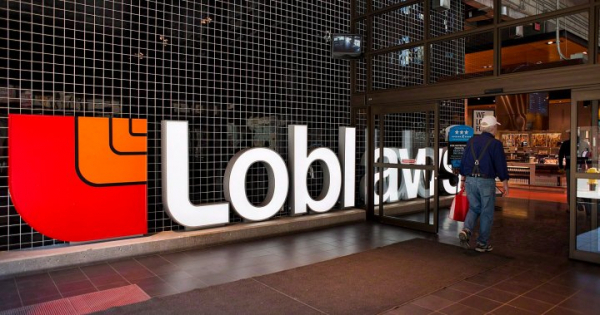Concerns are mounting over Canada's proposed grocery code of conduct, with industry experts warning that the initiative is doomed to fail without the participation of major players such as Loblaw and Walmart. Despite being in development since fall 2021 with a focus on fostering fair trading practices within the grocery sector, the code faces a significant hurdle as both Loblaw and Walmart Canada have refused to sign on.
During a meeting of the Standing Committee on Agriculture and Agri-Food, Sylvain Charlebois, a food researcher and director of Dalhousie University's Agri-Food Analytics Lab, emphasized the necessity of mandatory participation from all industry players for the code to be effective. Charlebois asserted that without the involvement of Loblaw and Walmart, the code would lack the teeth needed to ensure long-term food price stability.
The standoff comes amid a backdrop of rising grocery prices, with December seeing a 4.7 percent year-over-year increase, according to Statistics Canada data. Loblaw chair Galen G. Weston and Walmart Canada CEO Gonzalo Gebara have both cited concerns about the code's potential to drive up costs. Weston estimated that the code could add $1 billion in expenses to the supply chain, a burden that would ultimately be passed on to consumers.
Echoing these sentiments, Diane J. Brisebois, president of the Retail Council of Canada (RCC), acknowledged the complexities involved in crafting a comprehensive grocery code of conduct. While some big industry players have raised concerns about certain aspects of the code, Brisebois assured that the RCC is actively addressing these issues.
As discussions continue, it's evident that achieving consensus among stakeholders remains a daunting task, underscoring the challenges inherent in regulating the grocery industry and ensuring a fair and transparent marketplace for consumers.
As the Retail Council of Canada (RCC) continues to refine the proposed grocery code, President Diane J. Brisebois emphasized the need to mitigate any unintended consequences while expressing hope for a launch sometime in 2024. Despite challenges, Brisebois remains optimistic about the code's eventual implementation.
During discussions, Committee Chair and Liberal MP Kody Blois raised the question of whether large multinational corporations might receive exemptions from the code, shifting focus towards small and medium-sized businesses. Brisebois noted that while exclusion discussions are premature, they may warrant consideration in the future.
Meanwhile, the Canadian Federation of Agriculture (CFA) voiced support for the grocery code, asserting its benefits for all stakeholders and the economy. CFA President Keith Currie highlighted the appeal of the code to farmers, emphasizing the importance of security, transparency, and positive business practices throughout the supply chain.
As stakeholders navigate complexities and deliberations surrounding the code's development, there's a shared recognition of the potential benefits it could bring to the industry. With ongoing discussions and collaboration, the aim is to create a framework that fosters fairness, transparency, and sustainability for all involved parties.
In conclusion, the development of Canada's grocery code of conduct remains a work in progress, with stakeholders grappling with challenges and complexities to ensure its effectiveness and fairness. While the Retail Council of Canada maintains optimism for a 2024 launch, discussions continue on key aspects such as potential exemptions for large multinational corporations. The support from organizations like the Canadian Federation of Agriculture underscores the widespread acknowledgment of the code's potential benefits for the economy and all parties involved in the supply chain. As deliberations proceed, the overarching goal remains to create a framework that fosters transparency, security, and positive business practices throughout the grocery sector, ultimately benefiting consumers and industry stakeholders alike.






